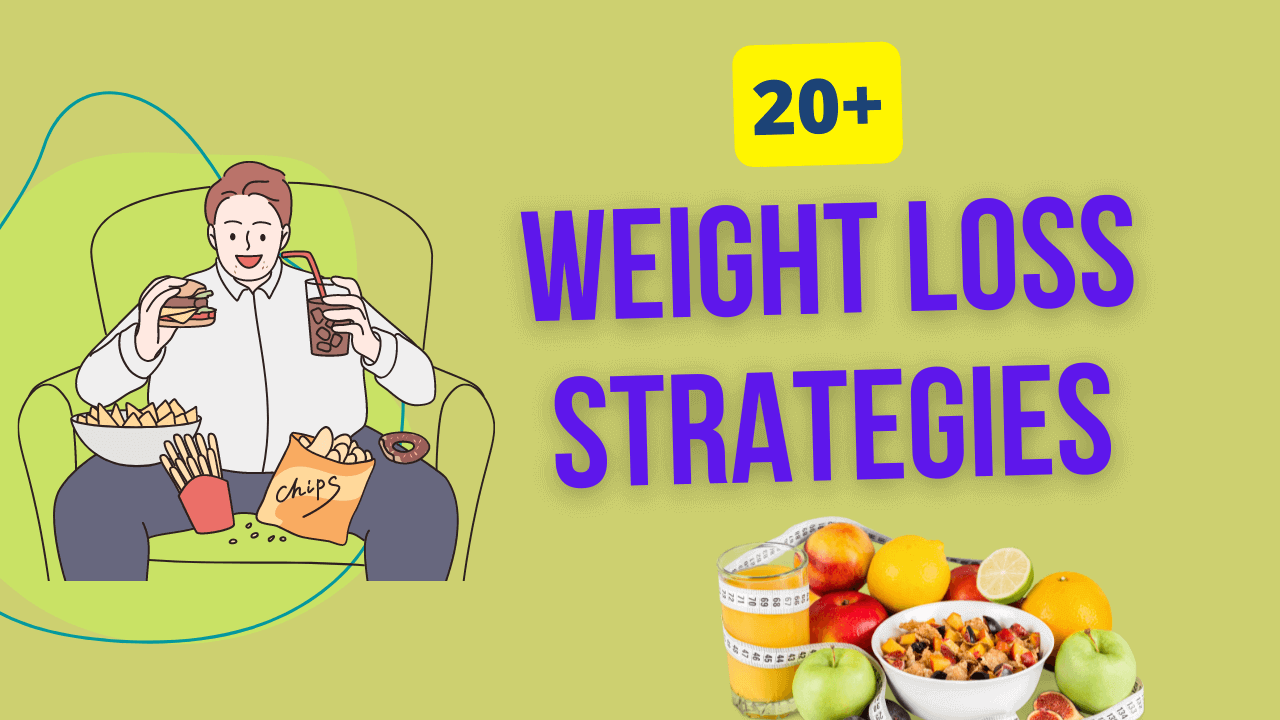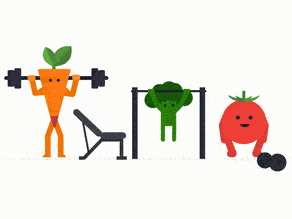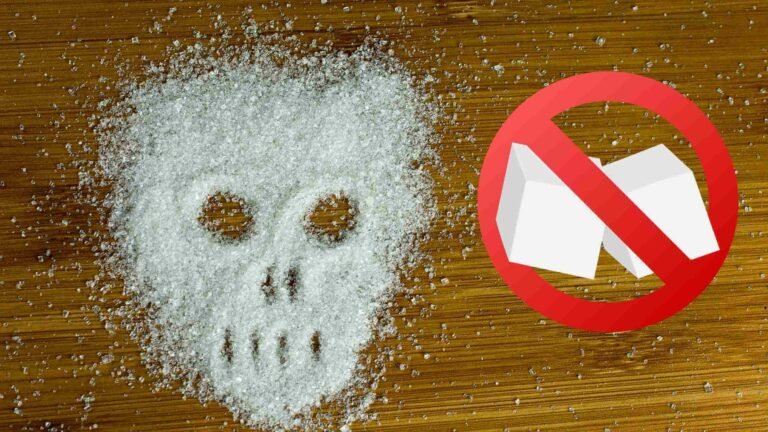20 Incredibly Useful Weight Loss Strategies That Work

Many people face an uphill battle while trying to lose weight and maintain their new weight. The appeal of quick-fix solutions and products is understandable. Mindful, long-term modifications to one’s diet and way of life are what most people find to be most effective.
Maintaining a healthy weight requires more than just adjusting your calorie and macro intake. The key is to find a happy medium between unhealthy food and exercise and other lifestyle behaviors that deplete your energy instead of boosting it.
The optimal strategy for losing weight is to do so in a timely manner while also maintaining one’s health by not restricting one’s diet to the point that one is likely to regain all the weight lost.
Doesn’t that just sound like a dream? In contrast, if you disrupt the body’s normal routines, whether, by diet, exercise, or both, you should experience positive changes. Your only requirement is a strategy. Here are the most effective weight loss strategies, as recommended by experts.
Here are the Top Weight Loss Strategies for losing weight healthfully:
Weight loss and maintenance might be less of a struggle than you imagine if you put your attention on adjusting your diet and your daily routine. Check out these options:
Listen to your body.
First things first, pay attention to what your body says…
The idea is to eat intuitively. Don’t eat just because the timer indicates that it’s snack time. When your body signals that you are hungry, eat, and when it signals that you are full, stop.
To properly hear these signs, you might need to be away from distractions. Put down the phone, turn off the TV, and shut the book. Setting limits during meals and reining in free snacking are wise moves if you’re attempting to get your body in shape.
The Mindset Matters
Your ability to reduce weight is unlocked by altering your attitude toward food and your body. Many people who have trouble losing weight view eating as comfort and pleasure while possibly associating exercise with pain and humiliation.
Achieving long-term weight loss requires accepting both exercise and food as enjoyable sources of energy. Learning how to lose weight naturally becomes second nature as you become aware of the limiting ideas that are holding you back.
Strive for a healthy balance
Maximize your health while you slim down by swapping out low-nutrient foods for those with more of a nutritional bang.
Reduce your intake of high-carbohydrate snacks like pretzels and canned fruit and increase your intake of veggies. The ideal ratio for lunch and dinner is 50 percent veggies, 25 percent carbohydrate or starch, and 25 percent lean protein.
Experts say this will help them keep their calorie intake down while still enjoying a varied and healthy diet. It may be effective in the short term to adhere to a stringent, extremely limited diet, but this strategy is rarely successful in the long run.
Best diet-friendly foods?
Fruits, vegetables, whole grains, lean proteins, healthy fats, and lots of water are among Experts’ recommendations for the greatest foods for weight loss. Protein is an essential building block for muscle, therefore eating foods high in protein will help you maintain your muscle mass even while you lose weight.
Even if you’re on a calorie-restricted diet, it’s still crucial to eat healthily. The recommended components of a healthy diet are:
- Ranges from 45% to 65% carbs.
- 20% to 35% fat.
- A protein content of between 10% and 35%.
Calories from fat are 9, from carbs and protein, 4, and from sugars and fruit are 2 (all per gram). This means that, on a 2,000-calorie diet, you should aim for:
- Include 225–325 g of carbs.
- Total fat content between 44 and 78 grams.
- 50–175 g of protein is recommended.
Control your hunger and overeating
It’s natural for hunger to act as a roadblock to any weight loss regimen. When you restrict your caloric intake, your body demands more. If you’re having trouble satiating your hunger, try swapping out the quick-burning carbs in your diet with items that deliver sustained energy.
If you find that you are hungry soon after eating breakfast, try substituting eggs or Greek yogurt for muffins or sugary cereal. By preventing hunger for longer, you can cut back on unhealthy snacking and lose weight.
Reduce your intake of sugar and processed foods.
Whether you’re trying to reduce your carb intake or not, chances are that you’re still eating too much sugar and refined carbohydrates every day. This includes things like white bread, pizza dough, pasta, pastries, white flour, white rice, and sweetened breakfast cereals.
However, this problem cannot be solved alone by switching to whole grains and cutting off sugary treats. Canned soups and vegetables, pasta sauce, margarine, and many low-fat foods all contain hidden sugar. Since your body can receive the sugar it needs from the food you eat, eating foods with added sugar is only a waste of calories and can cause dangerously high blood sugar levels.
Pro Tip: Fructose-derived calories (found in processed foods like doughnuts, muffins, and candies) are more likely to cause belly fat accumulation than other types of calories. Reducing your intake of sugary foods can help you lose weight and reduce your risk of developing diabetes.
Get some shut-eye every night, preferably eight hours, and figure out your sleep issues.
One piece of advice that has gained consensus among weight loss experts is that getting enough sleep is a key factor in successfully losing and maintaining weight loss. If you have trouble sleeping and suspect insomnia, try some of these proven techniques. Recent studies have shown that our bodies’ metabolic rates increase the longer we sleep.
Both the hormone leptin and the hormone ghrelin, which regulate satiety and hunger, are adversely affected by sleep deprivation. Lack of sleep causes an increase in ghrelin and a reduction in leptin.
The end outcome is increased hunger and less satiety. Worse, when you’re exhausted, you have an insatiable appetite for “energy” items like chips, candies, baked goods, and soda. When you combine the two, you can see how the average type a lifestyle leads to slow but steady weight gain.
Don’t pass judgment on food.

Many of us were brought up hearing that there are “good” foods and “bad” foods. However, this outlook is harmful. It’s common for you to crave particular foods more when you tell yourself you can’t have them, which makes losing weight even harder. Furthermore, it prepares you to feel bad about indulging in some sweets at a moment of weakness.
Concentrating on eating largely nutritious meals and developing other beneficial lifestyle practices can replace the harmful but outmoded “dieting” mentality. You don’t have to sacrifice the joy of food altogether, and you don’t have to feel bad about indulging occasionally.
Pro Tip: Although "calories in, calories out" is a common conception of weight loss, it's not quite that straightforward. Age, exercise level, body composition, illness, injury, and other factors all affect how many calories you need each day. Our metabolism is another name for how many calories (or other forms of energy) our body uses each day.
Preparing meals ahead of time
Constant hunger makes it hard to lose weight since you end up eating for comfort rather than health. Meal planning and frequent eating might help you control your hunger and eat more healthfully. The advice and assistance of a healthcare professional, nutritionist or certified dietician can be invaluable when it comes to achieving optimal health through eating.
Experts advise setting daily calorie and nutrient intake goals so that you may be sure you’re eating enough of the right meals to meet your weight reduction needs.
With the help of experts, you can create a personalized diet that incorporates the foods you enjoy and a workout routine that caters to your unique goals and preferences.
Get plenty of fluids ( Aka Water )

Sometimes you could mistake thirst for hunger and grab a snack when what you really need is a glass of water. While additional studies are needed, water shows promise as a weight loss ally.
Water aids in the elimination of waste and poisons from the body, both of which can contribute to excess weight gain. If you’re feeling hungry, it can help you feel full.
In what amounts should water be consumed? Ideally, you’d drink at least 64 ounces (eight 8-ounce glasses) of water per day. An interesting alternative is flavored sparkling water. Or, you can create your own taste enhancement by combining:
- An addition of sugar-free fruit juice.
- A touch of fresh squeezed lemon or lime.
- Cuts of ripe fruit.
Regular exercise is recommended.

To shed pounds, triathlons aren’t necessary. However, you must find techniques to increase your caloric expenditure in order to see any significant weight loss results. Obviously, food plays a role. The other is active pursuits like physical exercise.
Experts recommend beginning with a modest goal. You should try to get in at least 150 minutes per week (or 30 minutes, five days per week). It’s best to get moving first. Incorporate stretching into your routine to increase mobility, and weight training to increase your metabolism and maintain muscle mass.
It’s challenging to keep the weight off once it’s been dropped, Experts say. Weight loss can be aided by “exercising, and even increasing and varying your workout.”
Consider both process and end goals when you are setting goals. A process objective could be something like, “Walk for 30 minutes every day.” One example of an end aim is “to lose 10 pounds.” Changing your behaviors is the key to weight loss, so while it’s not necessary to have an outcome objective, you should create process goals.
Try Intermittent Fasting
Intermittent fasting is a tactic that has gained popularity recently. An eating pattern known as intermittent fasting involves frequent, brief fasts, or times when little or no food is consumed.
Particularly in people with obesity and metabolic syndrome, intermittent fasting for weight loss can be an efficient strategy to shed extra fat. Numerous studies have discovered that intermittent fasting’s metabolic effects, along with the calorie deficit it frequently results in, might contribute to a downward trend on the scales.
There are various types of intermittent fasting, therefore it’s crucial to identify the correct eating schedule for you if you want to start using this strategy. Intermittent fasting should be durable and fit into your lifestyle, whether it takes the shape of an extreme diet like the 5:2 diet or a more moderate one like 16: 8 intermittent fasting.
When eating unhealthy foods, use smaller plates
Nowadays, the average dinner plate is bigger than it was a few decades ago.
Due to the fact that using a smaller plate may encourage you to eat less by making servings appear larger, this trend may result in weight gain.
However, a larger dish may make a portion appear smaller, leading you to serve more food.
Serve healthier foods on larger plates and less healthy foods on smaller dishes to take advantage of this.
Pro Tip: Smaller plates might deceive your mind into believing you are eating more than you are. In order to eat less of the harmful items you consume, it is a good idea to use smaller plates.
Eat without being distracted by electronics
You may be able to eat fewer calories if you pay attention to what you eat.
People may become unaware of how much they have consumed if they eat while watching TV or playing video games. This might then result in overeating.
People who were distracted at a meal ate roughly 10% more in that sitting, according to an assessment of 24 studies.
Additionally, being distracted during a meal has a much bigger impact on how much you consume later in the day. Distracted diners consumed 25% more calories at subsequent meals than those who were present.
You may unintentionally be eating more if you frequently eat while watching TV or using electronics. These extra calories build up and have a significant long-term impact on your weight.
Make a list of your groceries and follow it.
Make a shopping list once you have your weekly menu set. You may do this on paper or with an app on your phone; I use Notes.
You’ll save time, cut down on food waste, and avoid buying things you don’t truly need by planning out what you need to buy before you go to the store.
Avoid shopping while you are hungry or fatigued in order to keep to your list. According to research, impulsive conduct rises at those times.
Aim for the Realistic Targets
My preferred weight loss strategy is to Start off with manageable, concrete objectives, and expand from there. If you consume soda every day, Experts suggest cutting back to every other day as a first step.
Or, if you aren’t very active, try going for brisk 10- to 15-minute walks three times a week. Your focus should be on the changes you make rather than the number on the scale. Give yourself permission to celebrate even the smallest victories.
Pro Tip: Write Down Goals – Make them SMART. That means they’re specific, measurable, achievable, results-focused, and time-bound goals. You might be more successful in achieving your objectives if you set SMART ones. Set separate objectives for body composition and performance. So that you are reminded of your goals every day, keep them visible. For instance, "Do 10 consecutive pull-ups in 3 months" or "Lose 15 pounds in 3 months."
The little things can really add up to make a significant difference when it comes to weight loss. When you hear the word “diet,” you might picture a drastic change in your lifestyle or miserable constraints. But according to research, you’re better off making little, regular changes than attempting a massive diet or lifestyle shift if you want to lose weight permanently.
It’s important to keep the modifications realistic and long-lasting so that you can permanently incorporate them into your daily routine. In one study, persons who made minor changes to their eating behaviors were better able to maintain their new routines and had greater success losing weight than those who didn’t apply the advice.
Consider Factors Other Than the Scale
The scale isn’t useless, but it’s not the only thing that counts either. Take routine measures and images, as well as keeping a running record of achievements that aren’t measured by the scale, to assist you track improvement that might not be visible on the scale.
This can help you maintain perspective about the scale and highlight all the beneficial adjustments you’ve made to your lifestyle and general health.
At dessert time, try different fruits.
Fruits are low in calories and packed with nutrients like fiber and antioxidants. Only 10% of Americans are consuming the recommended amounts of fruits and vegetables, according to the CDC.
In addition to helping you fulfill your daily requirements, using fruits as dessert will add flavor to your day. A variety of fruits can be grilled, sauteed, or baked. One delicious dish is grilled peach with vanilla yogurt and sliced almonds.
Read nutrition labels
“According to experts, “Food labels can be deceptive. Fat-free does not necessarily imply sugar-free, and vice versa. When extra sugar is added, many packaged foods, including yogurt and beverages, that are advertised as being fat-free actually contain more calories. To make wiser decisions, carefully examine the nutrition facts panel.”
Women should have no more than 24 grams of added sugar (equivalent to 6 teaspoons) per day, while males should consume no more than 36 grams (about 9 teaspoons). The nutrition label now includes a separate line for added sugar, making it simple to identify how much you consume daily.
Aim to limit your intake of added sugar by choosing naturally sweet snacks and include enough protein and fiber to feel full after meals. Keep in mind that excess added sugar is stored as fat. Aim for 15 to 25 grams of protein and 8 to 10 grams of fiber every meal. Each person will have different needs.
Find support
If you’re trying to lose weight, you don’t have to do it by yourself. When you’re feeling down, it’s a good idea to reach out to loved ones for moral support. To stay motivated and on track, it can be helpful to work alongside a friend who shares your objectives.
There are real mental benefits to socializing with loved ones, which can be gained through gatherings with friends. Support from friends and family can be invaluable while trying to reach any goal, but especially when those objectives pertain to one’s health and fitness.
It’s not necessary to attend every social gathering to which you’re invited; nonetheless, if you plan ahead, you may find that your social life provides you with the inspiration you need to go forward with your goals.
Be patient.

Although you may have found this post because you are desperate to reduce your belly fat quickly, the reality is that reducing weight, especially just fat, takes time. Dehydration alone will allow you to drop 10 pounds in a single day, but practically all of it will be water weight.
On the high end, you can reduce your body’s fat by 1.5% of your weight each week. Much more than that increases the likelihood that you will lose water or muscle.
The result is that a 200-pound man can lose 3 pounds of pure fat every week16, which is a significant 1,500 daily calorie reduction. It doesn’t follow that you should or will lose weight faster just because you want to. The extra weight will start to drop if you are patient and stick to your diet.
Finals Thoughts
With catchy headlines like “Drop 10 lbs fast” or “Fit Back into Your Skinny Jeans,” clickbait is all over the internet. But what if you believe you need to shed an excessive quantity of weight but have no idea where to begin? You’ve tried low-carb, low-fat, detoxes, keto, celery juice—you name it. You might be quite adept at reducing weight, but the difficulty is that you can’t keep it off: It is all about Mindset ( 90% of the Job ).
You must have a long-term mindset and concentrate on making minor habit adjustments if you want to lose weight and keep it off. Get advice from a professional so you can be held accountable and concentrate on the behaviors that will have the biggest impact.
Frequently Asked Questions
What are the four weight-loss methods?
There are several things to think about when trying to reduce weight, including age, sex, food, amount of activity, and medical issues. Experts in health have discovered that cutting calories, obtaining physical activity, eating a healthy diet, and getting adequate sleep can all help people lose weight.
What are the three elements of weight loss?
The proper combination of three factors—healthy eating, physical activity, and behavior modification—is the secret to losing weight. Without the proper nutrition, your body is unable to perform all the tasks you require.
How can I boost my metabolism so that I can lose weight?
Get more exercise. Increase the number of calories you burn each minute by including interval training in your exercise regimen.
Lift weights. Increase your body’s muscular mass to burn more calories when at rest.
Don’t miss meals, particularly morning.
eat meals that burn fat.
Every night, get a decent night’s sleep.
Note that this material is not meant to cover all possible uses, precautions, interactions, or bad effects; rather, it is meant to supplement, not replace, the advice of your doctor or healthcare professional. You should consult with your doctor before making any changes based on this advice. Never disregard expert medical advice or delay in getting it because of something you read ; always consult your actual doctor or other certified health providers first. Before beginning any new course of therapy or before discontinuing an existing one, you should discuss your options with your doctor or another healthcare provider.







One Comment